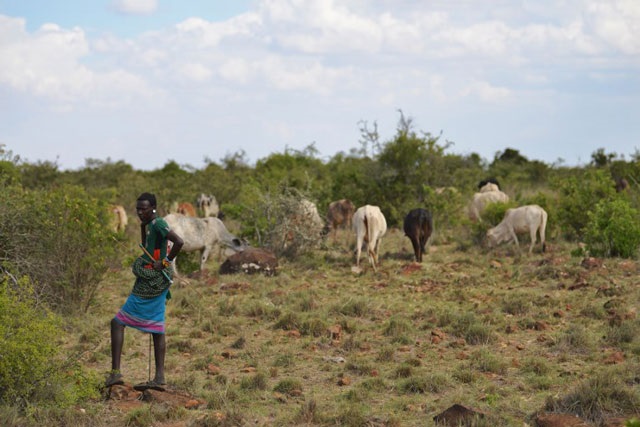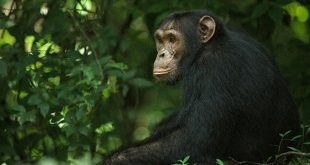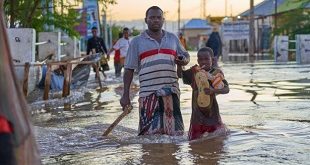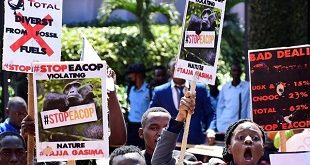
Crocodile Jaw Bridge, Kenya | AFP | Close by a narrow, rickety bridge in Kenya’s central Laikipia highlands two herders sit on blistering hot rock next to the muddy trickle of the Ewaso Nyiro river to explain why they routinely break the law, invading private land to graze their cattle.
“The reason we go there is not to grab the land, we go for pasture, nothing else,” says Lemerigi Letimalo, a 28-year-old Samburu herder in a Manchester United T-shirt with a mobile phone hanging in a pouch around his neck.
“The white settlers are the ones who call the police forces to attack us,” he adds.
Violence has spiked in Laikipia this year, with smallholder farms and huge ranches alike invaded by armed herders, leaving dozens dead and uprooting hundreds more.
A government-ordered security operation has so far failed to quell the unrest, which some blame on drought and others on politics. Accounts of the attacks are widely divergent.
The victims of the incursions are mainly black Kenyans living on small patches of farmland as well as white landowners, whose properties often run into the tens of thousands of acres (hectares), dredging up long-festering resentment over land ownership.
– Drought, law, violence –
The March murder of British rancher and former soldier Tristan Voorspuy and the April shooting of Italian author and conservationist Kuki Gallmann are among the most high-profile acts of violence.
But the young Samburu “morans” — the warrior age set that ends with marriage — sitting by the river at Crocodile Jaw Bridge on a recent Wednesday consider that they are the victims: of weather, of greed and selfishness, and of state violence.
They say poor rains have forced them to cut fences in search of grazing land, accusing ranchers, farmers and conservationists of protecting their own livelihoods at the pastoralists’ expense. They also accuse security forces of unfairly targeting them.
“When we go grazing in there we get attacked by the police. We don’t go in there for war or planning to stay, we just go in to graze until there are rains back at home,” Letimalo tells AFP, offering a rare insight into the Samburu herders’ side of the story.
He admits to illegally grazing the 50 cows and 200 goats that he is responsible for on other people’s lands and says police have shot dead two of his cows.
But Letimalo recognises neither the term “illegal herding” nor the law itself, which he describes as “for the landowners”.
“When there’s drought, a fence means nothing to me,” he says, speaking in the local Samburu language. “We blame the whites for bringing the police who attack our cattle and kill our people.”
 The Independent Uganda: You get the Truth we Pay the Price
The Independent Uganda: You get the Truth we Pay the Price


